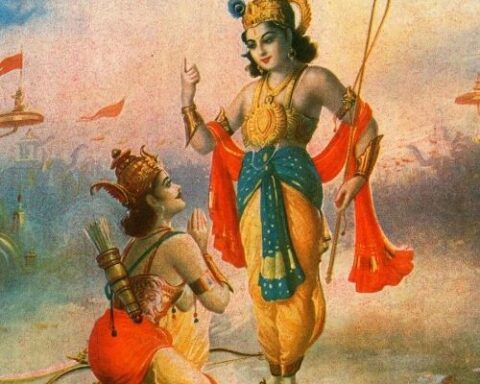Karma: Understanding the Law of Cause and Effect
Karma is a concept that originates from ancient Indian religions, such as Hinduism and Buddhism. It is the law of cause and effect, which states that every action has a corresponding consequence. Karma is a Sanskrit term that means “action” or “deed,” and it refers to the accumulation of one’s actions and their consequences, both in this life and in future lives.
There are four types of karma in Hinduism and Buddhism: Sanchita Karma, Prarabdha Karma, Kriyamana Karma, and Aagami Karma. Understanding each of these karmas can help us understand how our actions affect our present and future.
- Sanchita Karma
Sanchita Karma is the accumulated karma of past actions that have not yet manifested in our current life. It is like a storehouse of karmic energy that we carry with us from previous lives. This karma can be either positive or negative, and it is believed to influence our current life and future lives.
- Prarabdha Karma
Prarabdha Karma is the karma that has already begun to manifest in our current life. It is the karma that we are currently experiencing, and it can be either positive or negative. This karma is believed to be predetermined, and it is the result of our past actions. It is the karma that we have to face in this life, and it cannot be avoided or changed.
- Kriyamana Karma
Kriyamana Karma is the karma that is created by our current actions. It is the karma that we are currently accumulating, and it can be either positive or negative. This karma is within our control, and it determines our future karma. The actions we take today will influence our future karma, and it is important to be mindful of our actions and their consequences.
- Aagami Karma
Aagami Karma is the karma that is created by our current actions and will manifest in future lives. It is the karma that we are sowing for our future, and it can be either positive or negative. This karma is determined by our current actions and intentions, and it is important to be mindful of the seeds we are planting for our future.
Karma and Dharma
Karma is closely related to the concept of Dharma, which refers to the natural laws that govern the universe. Dharma is the path of righteousness and duty that one must follow in order to live a fulfilling life. It is believed that by following one’s Dharma, one can create positive karma and avoid negative karma.
The concept of karma and Dharma is closely tied to the idea of reincarnation, which is the belief that the soul is reborn in different bodies after death. The karma that we accumulate in one life determines our future lives and the experiences we will have.
Karma and Free Will
The concept of karma can sometimes be misinterpreted as fatalistic, meaning that everything is predetermined and we have no free will. However, this is not entirely true. While our past actions and karma do influence our present and future, we still have the power to make choices and change our future karma.
It is believed that our current actions and intentions determine our future karma, and by being mindful of our actions, we can create positive karma and avoid negative karma. It is important to take responsibility for our actions and their consequences, and to make choices that align with our values and beliefs.
In conclusion, karma is a fundamental concept in Hinduism, Buddhism, Jainism, and Sikhism. It refers to the idea that every action has consequences, and those consequences will come back to the person who performed the action. Karma is not just limited to actions, but also to thoughts and intentions. The ultimate goal of karma is to achieve a state of balance and harmony in one’s life.





